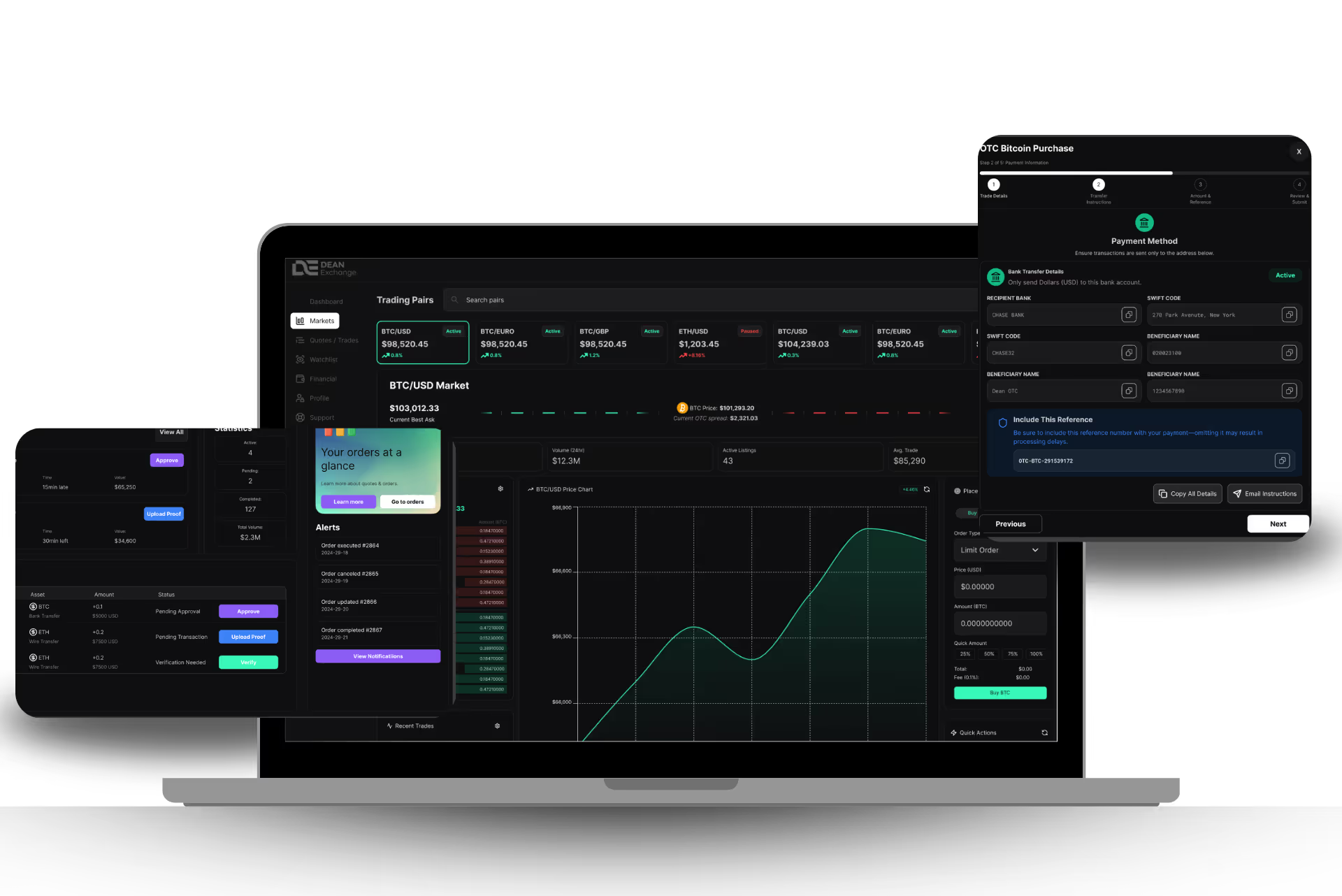By the
This is some text inside of a div block.
This is some text inside of a div block.
•
5
min read

As cryptocurrency adoption continues to grow, so does the need to understand where and how to trade digital assets safely. One of the first choices a new investor or trader faces is whether to use a centralized exchange (CEX) or a decentralized exchange (DEX). This decision can impact your privacy, asset control, ease of use, and overall security.
In this beginner-friendly comparison, we’ll explore secure vs decentralized exchanges by breaking down the core differences between CEX vs DEX and highlighting the pros and cons of each. Whether you’re learning the basics or looking for the best crypto exchange for your goals, this guide will help you make an informed decision.
At Dean Exchange, we empower users with expert guidance, live learning sessions, and practical cryptocurrency tutorials to help you trade confidently and securely.
What Is a Centralized Exchange (CEX)?
A centralized exchange is a trading platform managed by a company that acts as a middleman between buyers and sellers. Popular examples include Coinbase, Binance, Kraken, and Crypto.com.
Ideal for: Beginners, traditional investors, and those who want convenience, customer support, and fiat integration.
A decentralized exchange is a peer-to-peer platform that allows users to trade cryptocurrencies directly from their wallets, without an intermediary. Examples include Uniswap, SushiSwap, PancakeSwap, and dYdX.
Ideal for: Privacy-focused users, DeFi enthusiasts, and those seeking full control of their assets.
Centralized Exchanges (CEX) are custodial platforms where funds are held by the exchange itself. They provide beginner-friendly interfaces and mobile apps, making them ideal for newcomers. However, they require KYC (Know Your Customer) and identity verification for access. CEXs offer fast transactions with deep liquidity, and their fees are often lower, especially for high-volume traders. On these platforms, private keys are controlled by the exchange, not the user. Most major CEXs also offer robust customer support, direct fiat integration (like USD or EUR), and list vetted coins and tokens.
In contrast, Decentralized Exchanges (DEX) are non-custodial, meaning users retain full control of their funds and private keys. DEXs typically offer more anonymity with no KYC required. However, they can be more complex to navigate, especially for beginners. Speed can be an issue, as transactions may be slower during network congestion. Fees on DEXs tend to be higher, depending on the gas requirements of the blockchain. Customer support is generally lacking, often limited to community-driven help or DIY solutions. Most DEXs also lack direct fiat support, but they provide access to new or experimental altcoins that might not be listed on traditional exchange
CEXs often have strong internal security measures like 2FA, cold storage, and insurance against hacks. However, since they hold user funds, they are prime targets for cyberattacks.
Example: Mt. Gox and FTX are notorious examples of centralized platforms that collapsed, taking user funds with them.
DEXs are non-custodial, meaning you keep control of your private keys and funds at all times. While this greatly reduces the risk of platform-wide hacks, it also puts more responsibility on the user to manage wallet security.
Dean Exchange Tip: If you’re new to managing your own wallet, start with cryptocurrency tutorials on cold wallets, private keys, and seed phrases before trading on a DEX.
You’re required to hand over personal information (email, government ID, bank account) during signup. The platform controls your funds until you withdraw.
Pros:
Cons:
No signups or personal data required—just connect your wallet and start trading. You remain in full control of your funds.
Pros:
Cons:
Best For: Users who prioritize simplicity, convenience, and fiat compatibility.
Best For: Users who value control, privacy, and access to emerging tokens
Pros:
Cons:
Pros:
Cons:
Still unsure whether to go with a secure CEX or a decentralized DEX? Consider your priorities:
Many users choose to use both: starting on a CEX for initial purchases and moving to a DEX for specific trades or to explore decentralized finance.
Choosing between a centralized and decentralized exchange can be overwhelming—but you don’t have to do it alone. At Dean Exchange, we provide:
The debate between secure vs decentralized exchanges isn’t about which is better—it’s about what’s right for you.
Explore both, learn the differences, and grow your confidence with support from Dean Exchange—your trusted source for smart, secure, and successful crypto learning.
Ready to get started?
Join Dean Exchange and unlock practical tutorials, live sessions, and the tools you need to thrive in the ever-evolving world of crypto.


Join our newsletter for exclusive insights, breaking crypto trends, and learning opportunities—delivered straight to your inbox.